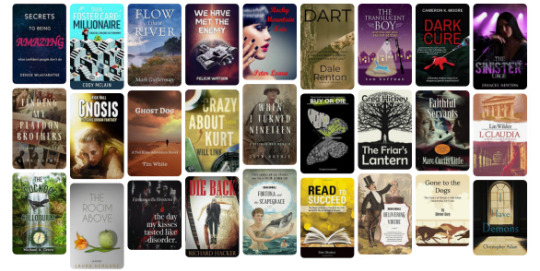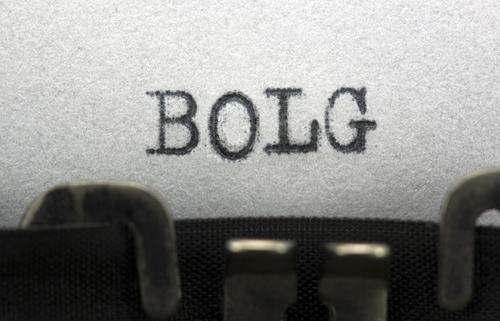Text
Why Book Reviews Are So Important

Photo by Chris Benson on Unsplash
“Disappointing”; “deflating”; “soul-destroying”; and, “a real jolt back to Earth!” These are just a few things authors have said to me after self-publishing their book, and realizing what comes next.
It’s such a shame! As an author, I know full well the amount of hard work, passion and dedication which goes into writing a book: the first drafts; second drafts; third drafts… rewriting; editing; proofreading. This is not to mention all the work which goes into the self-publishing process itself: the conversion to formats; getting the metadata right; formatting page and text, over and over, because you just can’t get it to display properly; getting the dimensions correct. Then, downloading – or even purchasing – your proof copy, only to find that it is still wrong! (Scream!!) So, to finally get it right, publish your book and draw a line underneath it is a massive achievement, a weight off your shoulders and a moment for celebration. Now, you can ensure it’s on Goodreads and Amazon, sit back, do a bit of social media and wait for the sales – and subsequently the reviews – to start coming in, creating a self-fulfilling cycle.
So, where are they!?
Unfortunately for the self-publishing author, promoting and selling your book is a full-time job, which requires expertise and investment of time - and often money. Simply put, it is a business. And, as we all know about business, you need to speculate to accumulate; in any industry, those with time and money to promote themselves will invariably be more successful than those without it. That said, few businesses are as competitive as the book industry: over a million new books are self-published every year – that’s over 2700 per day! Can you imagine any other industry in which you are up against that level of competition? Therefore, whilst of course a promotion budget definitely helps, it may not be enough; there is another thing which a book as a product relies on heavily, to stand out from the crowd – perhaps more so than any other business: customer (or in this case, reader) reviews.
THINK ABOUT THE PEOPLE BUYING THE BOOKS

Buying books – particularly fiction books – is often an impulse. Unless a reader is looking to purchase a specific title (in which case, they will probably do so via your link somewhere), it is safe to assume that they are probably browsing; as an unknown, self-published author, this is probably going to be your customer base. So, whilst not exactly relevant to this specific blog, it is still important at this point to advise of the following: ensure your book’s tags and keywords in all the blurb and copy are spot-on and comprehensive. If a reader is browsing for the following, for example: a medical thriller set in a Dystopian future, then you need to make sure your book’s description and metadata include those keywords, or you haven’t a hope of being found. Your author name, whilst obviously a relevant keyword, is meaningless to them and is not what they are looking for – if it were, of course there would be no need for any of this. Imagine looking for your book on a book-market stall, using the same search criteria: “medical, sci-fi, future” – even then, in a big market, there will probably be hundreds of matching titles. Your potential customer, therefore, needs some other means of making their decision.
The first, of course, and the most purist-driven, is the cover. People are drawn to a book’s cover when browsing in a bookshop – if it falls under their preferred genre – so this has to be eye-catching and relevant (read the blog: “Do People Actually Judge A Book By Its Cover? Why Your Book’s Cheap Exterior Might Be Hiding A Literary Gem”). However, that applies when browsing in person. Online – where a self-published author will most certainly be trying to sell their book – readers will probably have narrowed their criteria even further, and the most common way online shoppers do this is by customer reviews. According to latest research by Qualtrix (2019), 93% of people say that their online purchasing decisions are influenced by reviews. Therefore, it would seem that those searching by a book’s cover are unlikely to see past a mediocre one, whereas those searching by review rating are less likely to care about the cover at all!
Simply put, customer reviews are a must for any new business, but especially books by unknown authors.
HOW DO I GET BOOK REVIEWS?
Many of you are now thinking that this much is obvious, and that the issue isn’t whether to get reviews – you already know that you need them – the issue is how to get them.
If you search book reviewers online you will be inundated with blogs and websites by readers who just love to read books in your genre – there are literally hundreds; perhaps thousands. Of course, to locate then contact them all would take weeks, to be optimistic. To make life easier for you, just assume that the best of them can usually be found on the following lists (myself included):
· BOOK BLOGGER LIST
· KINDLE BOOK REVIEW
· BOOK REVIEWERS’ DIRECTORY
· TWEET YOUR BOOKS
Whilst all excellent resources, sometimes the information can be a little out of date. Often you’ll find, when your visit the individual bloggers’ sites, that they have restricted the service, or suspended it altogether. There is a very simple reason for this: they are utterly overwhelmed by submissions (at the time of writing this blog I have well over 200 books on my TBR list!). If you are able to send them your book, many will reply outright that they simply aren’t able to read it, or that you should come back in a few months; some say they’ll do their best. The number of reviewers able or willing to say yes straight away is far smaller than that which are not. Moreover, if a reviewer agrees to add your book to their list and promises to read it, bear in mind that it may be months before they actually get around to doing so. There are no guarantees at all.
At MJV, we have compiled a comprehensive global list of reviewers, including preferred genres and first name contacts, and can contact all relevant bloggers on your behalf. To find out more about the MJV reviewer service, visit https://www.mjvliterary.com/reviewer-submissions.php
SHOULD I EVER PAY FOR A BOOK REVIEW?
This is a contentious issue amongst many authors. If you search this question online you will find many people who say you absolutely should never pay for a review of your book. Their arguments against doing so are most commonly, though not exclusively:
1. There are literally hundreds of reviewers out there willing to read your book for free;
and, more importantly:
2. How can a paid book review be considered impartial and honest?
The first is pretty self-explanatory, and of course true, but as mentioned above, “willing” and “able” are not necessarily the same thing. But, as a blogger who offers both free and paid reviews, I have to say that I find the second insinuation – that payment somehow indicates bribery or coercion for a positive book review – particularly insulting. There are many paid services, in many industries, to which this allegation can be equally applied, yet it isn’t, so why book reviews?
This is where a reviewer’s policy comes in particularly important, which you should always read, and certainly if your review is a paid one. Any reviewer of any integrity should ALWAYS stipulate, very clearly, that paying in no way implies or guarantees a positive review, and has no bearing at all upon the rating he/she gives. My own policy clearly states “I do not offer favourable reviews in exchange for Premium payment” (www.mattmcavoy.com). If you are intending to pay for positive reviews, there are plenty of bogus offers out there, on websites such as Fiverr and even eBay, which can provide these in the same way as fake followers and likes on social media. If you do choose to undertake these services, consider that this makes you as active a participant in these online scams as the vendors, and live with the fact that your book reviews are not genuine; I would strongly urge you to follow your conscience in this respect. Decent, ethical reviewers may offer a paid service, but they should not be tarred with the same brush as the corrupt ones. Whether you choose to pay for a review is your choice, but don’t expect that you are buying a guaranteed positive one, because with any decent reviewer, blogger or influencer, you will not be.
So, why do some ethical book reviewers offer paid reviews? Simple: to guarantee your book will be read and your review posted within a timeframe, and no other reason. Payment may enable them to prioritize your book in a way that other work commitments may restrain them from so doing, and they can reasonably be expected to post before or on a specific day, as stipulated by the authors – for example, to coincide with a book launch. The alternative option may only be to sit on their TBR shelf and wait for something which may never happen.
AND FINALLY… PROBLEMS POSTING AMAZON REVIEWS
Aah… Amazon (shaking head emoji)!
This website, I’m afraid, is a law unto itself. I challenge you to find one habitual book reviewer who has not argued at least once with Amazon about having their reviews suddenly, indiscriminately and unexpectedly removed. Their interactive features are monitored by bots, and these bots, frankly, are quite mad. Imagine the Mad Hatter’s tea party with A.I. guests, and you’ll probably see Amazon’s review bots there. They are ruthless, and they remove reviews simply in response to their voices in their own heads!
The reasons they cite are usually related to their posting policy, which is generic and ambiguous at best. It is also dynamic and constantly changing to provide a more secure and genuine customer experience – in other words, what is acceptable today may not be tomorrow; you’ll simply never know; I gave up trying to second-guess them long ago. Obviously they do this to tackle the very same scam artists mentioned earlier, and it will only get tougher, in response to the currently ongoing TripAdvisor fake reviews scandal. Whilst this is understandable and admirable, the problem with Amazon is their proactive approach, and their unofficial policy: “if in any doubt, shoot first, and don’t ask questions at all.” Often, bloggers don’t know their reviews have been removed until the author has complained to us, and we can offer no explanation. Incidentally, I recently had reviews removed because I hadn’t spent enough money on Amazon (genuinely) – I bought a few things for $50, and my reviews were reinstated.

Photo by Pinho on Unsplash
The simple fact is that nobody can guarantee the longevity of their reviews on Amazon – if they say they can, they are lying to you or themselves. The review might be posted easily enough, but whether it is still there a year later is anyone’s guess - even Amazon don’t know what their policy will be then. In a nutshell, don’t expect reviews to stay on Amazon – expect to keep having to work, tirelessly, to get them and keep the cycle going. This is very concerning, to be honest, because Amazon is undoubtedly where most self-published authors are trying to sell their books. If only there was another way.
If you would like your book reviewed, send it to Matt McAvoy at https://www.mattmcavoy.com/your-book-reviews.php
0 notes
Text
Which Format Should I Choose To Publish My Book?
#ReturnToRealBooks

Photo by Anastasiia Ostapovych on Unsplash
Good for you!!
You’ve worked hard; devoted months (years?) of your life; written until smoke poured from the page; read through; rewritten; proofread and finally closed your laptop; you have finished your book! Congratulations.
Assuming you have had the book copy-edited and proofread (if you haven’t, close this blog page right now and visit our Editorial Services, because you’re not ready to publish your book!), you are now faced with a decision. Before we come to the subject of the blog, and how your choice of target reader directly affects the book’s most suitable format, there is a decision you need to make now, if you have not already done so – one which you need to think long and hard about:
SHOULD I SELF-PUBLISH OR TRADITIONALLY PUBLISH MY BOOK?
There are probably thousands of blogs and webpages on this very subject, and all will give you the same message; none can make this decision for you. The decision to self-publish or traditionally-publish is a very personal one, and all anyone can do is advise you of the implications of making either choice.
Of course, the first factor in the self-pub or trad-pub decision is out of your hands: are you even going to get an offer? How long are you willing to wait for an offer, before admitting that you may need to take the reins yourself? Is it such an ambition that you will settle for nothing less than a publisher’s contract, even if it takes your whole life? In episode 4 of my podcast series “Fiction Writing Basics: Preparing to Publish”, there is a lot of advice about how you should choose and approach publishers with your book, including how to create and present your synopsis; whether you should use an agent; whether you should put your faith in small indie publishers; but of course this is all advice aimed at those making the decision to traditionally publish. Assuming you have the choice, or you are planning on trying one option for a while before pursuing the other (don’t self-publish the title if you are hoping for a publisher deal for it!), that is a decision which really comes down to personal preference, ambition and model.
Authors choose to self-publish for numerous reasons, but if we are being completely candid, they are most commonly the following:
1. They have been unable to gain representation and have given up trying to do so;
2. They haven’t the nerve, stomach or time to pursue a publisher’s deal;
3. They want to retain full control of their book, its rights and its royalties.
The first two of those reasons no-one can really help you with; they are between you and yourself, but reason number 3 is one that I personally like a lot, as an advocate and professional of the self-publishing industry. Full control is not to be understated, and it is a major benefit of self-publishing. Even famous authors often choose the model, for this very reason (Charles Dickens, by then already hugely successful as an author, chose to self-publish A Christmas Carol, which went on to become undoubtedly his most successful book).
Bear in mind, there are a few general factors which may affect your ability to gain a traditional publishing deal as a matter of standard:
· If your book has already been previously self-published, it is very unlikely to gain representation;
· Many publishers – particularly larger ones – will only accept submissions from an agent;
· Publishers - and particularly agents – may only be willing to take a chance on known authors or currently trending subjects;
· If your book is a short story or novella, it is less likely to be appealing to a publisher.
For these reasons, and others, smaller publishing houses and imprints are often deemed more desirable and approachable to authors. But – hugely importantly – if you choose to support a small publisher (and, good for you if you do), ensure that they have the financial means to promote and sell your book, before signing away its rights.
If you can get a publisher, their job – in a very small nutshell – is to sell your book, plain and simple, meaning that you don’t have to (with the exception, of course, of whatever promotional puppetry they write into your contract). With traditional publishing, you don’t have to spend your own money advertising, and every spare moment marketing and maintaining a virtually permanent social media presence – though, of course, you can if you want to. When self-publishing, however, you do have to do all of these things, and more still. You can try to distribute the titles, but the big distributors (Ingram Spark and Gardners) will require your book to be published under an imprint, so you will need to create one. You can choose to self-publish and outsource all of your sales and marketing, but this is very expensive and time-consuming business.
But, if you manage to get all of this right, the benefits of self-publishing are big: you keep all of the rights and all of the royalties – these are not insignificant factors by any means, when considering that after taking out production, marketing and commission costs, you’re lucky if publishers will pay you between 10-15% royalties on net sales – this applies even if they choose to slash your book’s cover price for pound-shop retail – and there is nothing you can do about it. When self-publishing, you can change the marketing plan; you have control over T.V rights and sequels; plainly put, publishers don’t make the decisions about your book’s future – you do.
PRINTED BOOKS VS. E-BOOKS VS. AUDIOBOOKS
E-books have become extremely popular in the past 12 years, since the birth of the Kindle, and the recent rise in audiobooks has been arguably more formidable. But, printed books have still held off the challenge, and remain the most popular way to read, accounting for two-thirds of all books read in the U.S. in 2018 (Pew Research); whilst e-book sales are reportedly falling, audible books are on the rise (I explore the reasons for this in the blog: “Is Seeing Your Book In Print Every Author’s Dream?”). So, which of these formats should you publish your book in?
Of course, this question is only relevant to those of you choosing to self-publish: traditional publishers will make this decision themselves. A likely response to the question will be: preferably I’d publish in all of them; print, e-book and audiobook. While that sounds nice in theory, is it feasible? An immediate factor which springs to mind is cost: creating e-books is generally free, or very inexpensive, and doesn’t take very long for those with the know-how; printed books are, of course, more expensive to produce – an ISBN will be required, unless you are publishing through KDP or another platform which will provide one for free. Granted, unless you purchase a print run, your published book will be a print-on-demand model, meaning that you don’t get charged for its creation, which is instead incorporated into the cover price. However, factors like imagery, type of paper, hard or soft cover and size will all affect its retail price – quite dramatically, too. Amazon is notoriously greedy when it comes to their costs and royalties, and you may find when publishing on their KDP platform that you have to charge a much higher cover price than you and your readers would like, just to cover the costs; in other words, your book can be very expensive and you still might not make a penny! Audiobooks, too, are expensive to produce – perhaps in the thousands! The reason for this is obvious: you’re paying hours and hours of its narrator’s wages, unless of course you choose to record the audiobook in your own voice, as many celebrities do. There is also a certain amount of technical knowledge and equipment required to record a book of anywhere near good enough quality for the market.
Suddenly, the choice of format doesn’t seem such a flippant one, and requires careful consideration. But, don’t be tempted to just rush out and publish in the cheapest format, either: it may be totally unsuitable for your book.
THINGS TO CONSIDER WHEN CHOOSING YOUR BOOK’S BEST FORMAT
Generally speaking, there are three primary elements to consider when choosing your book’s best format: the target audience, the genre and the narrative.
Starting with the latter, there are two clear ways in which narrative affects its most suitable format: the first may seem a touch obtuse, but it is worth a mention anyway: that a book with vast swathes of dialogue and little action or scene-establishment may reveal a frustrated playwright – in this case, would your book present better as a screenplay than a novel? The second implication of narrative is in the story itself: it may lack depth in its story arc, so much so that the most which can be realistically eked out of its quality is a short story or novella. E-books and audiobooks are ideal formats for short books – the latter becoming cheaper to produce, whilst with e-books you can charge pennies for a title and still make a royalty. By contrast, the production costs of a printed book of your short story or novella may make its cover price disproportionately expensive, and not good value for money. Short stories are great for commutes and lunch breaks, which also makes them ideal for digital formats.
This example highlights how the audience for your book becomes a factor in its suitable format. The most important variable to consider of your target reader is how he or she is reading this particular title: on the commute; in bed; in the park; in their coffee break? This variable is what also ties genre directly into the format debate. For example, consider that you are reading a rather racy book about bondage, with a full-colour printed cover – probably not something you want to be doing on a rush-hour bus; if you are studying music or algebra, you probably wouldn’t choose to do so in a bustling staff canteen during a 10-minute coffee break. Knowing your target’s preferred reading habits should give you a clearer understanding of which is the most suitable format for them to enjoy your book. Commuters and those who like to read in public will likely prefer something portable, such as an e-book, an audiobook or an 8-inch paperback; they are unlikely to be happy lugging about a 12-inch hardback, 3-inches thick. Those looking to be educated may expect to see high-resolution imagery, which means glossy paper and large pages – of course, making the book much more expensive; this presents a clear indicator of how genre becomes directly correlated to target reader, and in turn to best format. Educational books – such as nature and historical - may have incurred considerable expenses in their research and compilation, so a higher cover price is justified and expected, as are a hard cover, glossy paper and high-quality images. By contrast, certain genres of fiction, such as the more light-hearted ones – chick-lit and action, perhaps – are more likely than others to be read in public, if only because of the lesser concentration required. Therefore, they need to be portable: again, e-books, audiobooks and 8-inch paperbacks, etc. Shorter chapters may also be appropriate, for short breaks and commutes. Another big consideration in fiction is that it is devoured at a greater rate and bought more impulsively, so readers expect it to be affordable.

Photo by Igor Rodrigues on Unsplash
To summarize, different genres will always elicit different expectations in the reader. When choosing a suitable format for your book, you should always consider the genre, in conjunction with the following factors: is portability required; is discretion required; is concentration required; is imagery featured, in which case digital formats and matte paper may be completely unsuitable. For a much more comprehensive breakdown of how reader demographics and specific genres correlate with best book formats, I highly recommend that you listen to lesson 1 of my podcast “Fiction Writing Basics: Purpose and Best Format”.
Posted by Matt McAvoy: 31st Aug 2019
#self publishing#publishing#authors#podcast course#writing course#writing fiction#traditional publishing#ebooks#audiobooks#books formatting#fiction#genre
0 notes
Text
Is Seeing Your Book In Print Still Every Author’s Dream?
#ReturnToRealBooks

Photo by Bruce Mars on Unsplash
One of the few beautiful moments one can experience is achieving a lifelong dream. For a writer, that is often the moment they unwrap that parcel from the printer, or publisher, and hold that clean, unopened book in their hand, for the very first time – the one with their author name emblazoned across the front of its glossy, professionally-designed cover; the smell of the print still fresh; the rough-yet-smooth feel of its pages… It is a magical moment, and one which will have undoubtedly elicited the same euphoric feeling of delight from writers for centuries. Perhaps, that is, until now.
THE DIGITAL TAKEOVER OF THE BOOK INDUSTRY
The past 12 years or so have seen a digital offensive on the book industry, at a pace and on a scale which can only be paralleled by the progress of the technological age generally. And, with it, the attitudes of readers – and writers – have changed also. It is the biggest change in the way people create, buy and read books since the launch of industry monopoly Amazon, another 12 years prior to that, and it therefore comes as little surprise that it was the online retail giant itself which supercharged this move to the new digital format, with the launch of its first electronic reader, the Kindle. Now into its 10th generation (at the time of writing this), with over 20 models having been introduced to the market, the Kindle has become and remains one of the most popular ways to read books in the world.
However, unlike the unopposed coup with which Jeff Bezos launched his platform in 1995, effectively obliterating a millennia-old industry in one fell swoop, Amazon’s conversion of the population into exclusively loyal users of his Kindle has faced far more resistance, and some pretty stiff competition, from Barnes and Noble’s NOOK, the KOBO and more recently, and perhaps more severely, iTunes for the mobile phone and iPad. In fact, the e-reader generally is not going unchallenged in the digital market, with the relatively sudden, imposing appearance of audiobooks.
Considering reports by most large publishers and industry research, both 2018 and 2019 saw a decline in e-book sales, whilst audiobook downloads are consistently increasing. Although recorded books have been around for almost a century, in some recorded form, it was possibly the birth of the internet which really kickstarted its fortunes as a potential cultural movement. The reasons for this correlation are several, though perhaps simplistically three spring most immediately to mind: the first is that the internet has created more opportunities for cost-effective distribution and a massive choice of titles, on a scale never before seen in audible books; the second is that with the internet – and digital media generally – the sound quality of our affordable personal devices has improved remarkably; and, thirdly, perhaps more grimly, is that as a society we are arguably becoming more sensitive to external negativities, withdrawn and less sociable, so it is becoming increasingly appealing to put on a pair of headphones and shut out the world when in a public space. Of course, this last is conjecture, and perhaps a fanciful, somewhat morbid assumption; let’s not forget that reading books has always generally been a solitary activity.
But of course, the biggest challenge to the e-reader is more fundamental and perhaps more romantic: the fact is there remain millions of purists who simply refuse to be converted away from their printed paper books – “real” books. Any of us who genuinely love reading and writing will have an opinion on the digital movement’s impact on real books, and most would probably agree that holding a plastic device doesn’t come close to comparing to the feel, mood and atmosphere of holding a book in our hands; listening to the crisp sound of the pages turning; watching candle-light dance across them; not wanting to physically close it, because we are too gripped and dare not lose our page – these are simply the feelings which cannot be reproduced digitally. And, for most passionate readers, that is just what reading is all about: feeling. It is for this reason that the printed book remains the most popular format for readers, accounting for around two-thirds of all books read in the U.S. in 2018 (Pew Research).
SO, PURISTS STILL LOVE REAL BOOKS, BUT ARE THEY ENVIRONMENTALLY FRIENDLY?
Clearly, the past 20 years or so have seen a huge cultural and generational shift in how we create and read books. The digital media age has aligned itself with two very real and not minor concerns which face authors, and the world as a whole. The first is that digital publishing has made it significantly easier to self-publish books which would otherwise have never made it past the manuscript stage, in an industry which is, and always has been notoriously difficult for the huge majority of authors to present themselves in – perhaps even more so now, in the era of celebrities, and their dominance of best-seller lists. But, obviously, the second reason why creating physical books may seem less desirable now – particularly for younger generations – is the single most vitally important issue to writers and readers, more so than any of the other considerations: the planet itself.
Undoubtedly, the creation of all books has an environmental impact. E-readers are made predominantly of plastic, which, as we know, has a dreadful impact on the environment and species around the world, with a long-lasting legacy. As well as the toxic qualities of an e-reader and the materials used to make it, the production process itself leaves a significant carbon footprint. Arguably worse, most of its components are not yet biodegradable. But it would not be impartial for us to overlook the reality of creating real books, either. Whilst they generally do not contain plastics, their own production still has a vast environmental impact. Of course, the sad truth of our world is that everything we produce as a species leaves a damaging legacy behind it, so in the carbon footprint argument, perhaps it would be unfair to single books out.

Photo by Jiapeng Guang on Unsplash
However, the amount of paper used to produce real books is very industry-specific, and has a huge conservation implication: that is, of course, deforestation. Advocates of e-books and digital media have always argued that our overuse of paper in society has had a spectacularly detrimental effect on the world’s forests – and few could disagree. There are a lot of people who argue that it is irresponsible and downright immoral to keep cutting down trees when we have no need to do so, because all media can now be transmitted digitally - it is a strong argument.
Perhaps the true questions we as a society need to ask about the use of paper are: how much of the paper we use is recycled; and, are the trees we cut down being replaced? On both fronts, information is extremely cagey to come by. We would all like to think that governments and corporations are meeting their obligations for reforestation, but it is probably safe to say that many of us are skeptical of this, and consider blind faith in those with a corporate interest naïve. However, to spin an unusual positive note, just this year the United Nations launched “A Decade Of Ecosystem Reforestation”, with a joint objective to reforest an area larger than India by 2030 (The Guardian). Sadly, this is not the first time such an agreement has been reached; even if they succeed now, will they do so next time? There is a silver lining, however, that paper is the most recycled material in the world, with an average recycling rate of over 70%, which is just a little short of its viable maximum, assumed to be around 78%. When you add to this the fact that 40% of all printed books by traditional publishers are turned to pulp, which is presumably reused, the future of paper consumption in the industry starts to look, perhaps just a tiny bit, less severe.
It is not the intention of this blog to propagandize or influence writers in any way – I am sure I have said nothing which they have not themselves considered - though if authors are so disposed to creating printed versions of their books to the degree that nothing else will satisfy their ambition, they will invariably do so. For them, then, perhaps the answer lies in self-publishing, the beauty of which is that there is much less likely to be wasteful print runs created, as most self-publishers choose a print-on-demand model – ie. individually creating books, as orders come in. If the sacrifice we make comes down to a choice between our own glorification by a traditional publishing deal or the fate of the planet, I’d like to think that most people would make the latter choice. Perhaps – at the risk of appearing flippant – this is another strong case for self-publishing over traditional publishing, although that debate is a matter for another blog.
Posted by Matt McAvoy: 30th August
#author#ebook#self publishing#traditional publishing#kindle#audiobooks#digital media#ebook or printed#are books environmentally friendly#ReturnToRealBooks#real books
0 notes
Text
Should I Ever Pay For An Editorial Appraisal Of My Book?

Photo by ThoughtCatalog on Unsplash
Great! You’ve finished your book! You’ve been working hard on it for weeks… months… ten years, even! You’ve checked through, double-checked, put it through the spellcheck and your reasonably priced grammar software, and now you think you’re ready to go ahead and submit it to publishers, or upload it to your self-publishing platform. But, think again.
Have you had a professional look at it? Not a piece of software, or your sister-in-law, who has a college certificate in English Lit, but a bona-fide editorial professional, with experience of copy-editing books, beta-reading and proofreading? If you haven’t, there is one very simple message: you should. It doesn’t matter if you’re publishing your first novel, or are a best-selling global brand, absolutely without a doubt you either should or will have a professional read through your manuscript and suggest – perhaps even make – changes which can be very minor, or utterly ruthless. There is a very good reason why publishing books is considered a professional field, and even in these days of massive self-publishing (in 2018 Bowker’s annual report claimed that over 1 million books were self-published in the previous year – that’s over 2700 per day!) it is vital, perhaps more than ever, that your writing quality is as good as you can possibly make it. The phenomenal rise in self-publishing has had a predictable, inevitable side effect: the market has been flooded with books which are – to put it politely – not particularly good. If you want to compete with them all, your writing needs to be better. Sure, a good story and top-end marketing will get you sales in the beginning, but book sales rely on another necessary evil: book reviews. If your reviews are coming in numbers, with many criticizing your grammar and editorial conscientiousness, that initial surge in sales will peter out very quickly.
But, editorial professionals are expensive, right? Well, not necessarily. Don’t you need to pay good money to get good quality? Again, not necessarily.
RESPECT YOUR READER
Because of the high cost of printing, particularly when selling print-on-demand copies - which will most likely be your Amazon KDP model – you will quite probably have to sell your book for a much higher cover price than you would like. To be frank, the more a reader has had to pay for your book, the better attention to detail she will expect from it. Just imagine if it were any other product – a new car, or a pair of shoes – and you paid much more for it than the market’s low-end version - wouldn’t you expect the quality to reflect this price tag; isn’t that why you might choose a BMW over a Renault, or a Ralph Lauren shirt over one from H&M? If it starts to unravel at first use, wouldn’t you feel somewhat cheated? I recently reviewed a book which was less than 120 pages long and littered with grammar errors, with an Amazon price tag of $18! Needless to say, my review was scathing of this point above all others, and its star rating was directly affected because of it. Imagine a hundred reviews of your book all saying the same thing.
A reader has chosen your book, over the billions of others on the market; they have invested hours – days – of their time in giving your work a chance. The least you can do is pay them the respect of providing a quality product. Surely that’s common courtesy, is it not?
WHICH SERVICE DO I NEED – BETA READ OR EDITORIAL APPRAISAL?
Now that you have established the reasons why you should have a professional check over your book, how do you know which service you should commission from them? Well, this is where their expertise and advice comes in. In lesson 4 of my podcast series “Fiction Writing Basics: Preparing To Publish”, I state that a beta-reader’s service is necessary and invaluable before publishing your book, and furthermore that you should always take their advice, no matter how much it stings. Their expertise has to be considered an authority; in other words, if you are not going to take their advice, why use them in the first place? If you don’t agree with their recommendations, on one or two points, engage in dialogue, and give them the opportunity to explain their viewpoint. If you find yourself consistently disagreeing with them, on every point, perhaps it may be time to accept the match between you is not right, you might be making a lot of mistakes, or they may not be as good as you thought they were – all are equally possible scenarios. But, whatever you choose to do with their advice, always consider it fully before making any rash decisions, or dismissing their findings out of hand. Remember, they are impartial commentators, and they are not in the business of selling your book, nor interested in dashing your dreams; most are probably writers themselves.
A beta-reader’s rates may vary dramatically – some will not charge you at all; same may be absurdly priced – and the fee may not necessarily be a reflection of how good their own literary proficiency is, or their creative streak. Get amateurs to read your book, by all means – as many as possible – but don’t be fooled into paying professional rates. This is why it is extremely important to carry out your due diligence on a beta-reader, just as an editor, proofreader, or indeed any other professional in life. Read their reviews and testimonials; take a look at their portfolio of client projects, if it is available – from that you can see their work quite openly. A professional to the stars is going to charge a lot more for their services than your average go-to for self-publishing authors. Does this mean they are better? Well, probably yes, actually, but that does not mean you won’t find some are simply riding their celebrity reputation and nothing else. On the flip side of this, you will also find that there are superb professionals happy to help you for a fraction of the cost – if you can find them.
A beta-reader will assess every aspect of your book, including editorial quality, inconsistencies and gaps in the narrative, story and character development, as well as your book’s structural layout, and perhaps, if a genre specialist, legal implications relating to defamation and libellous content. In this respect, a beta-read is very different to an editorial appraisal. Depending on the service you pay for, your editorial appraisal can vary dramatically – some may provide very similar feedback to a beta-reader, but they may call it something different, like a “manuscript assessment”. An editorial appraisal, on the other hand, should go through your book, line by line and chapter by chapter, looking for editorial inconsistencies and grammatical flaws. It will provide similar technical feedback to the beta-read, but will more likely veer away from the creative construction in your book, particularly where that creative critique is subjective – an editorial appraisal will assume that you are already past this stage when you commission the service. Of course, there are exceptions; if the errors or inconsistencies are clear and need to be addressed, a good, reputable editing service most definitely should advise you of this in the appraisal. In our own editorial appraisals we pride ourselves on being extremely scrupulous, and will always advise you if we don’t think your book is ready to proceed with proofreading or copy-editing – we would certainly expect other companies to be equally as ethical. Unfortunately, many run their online editing service more like a non-refundable app than a personal service for their clients.

HOW DO COSTS AND SERVICES VARY?
The cost of a “manuscript assessment” can be very pricey, and there may be several reasons for this: it does involve a lot of work – far more than a standard editorial appraisal – and the companies which offer them want to make the time and investment they have spent - which may include legal research - worth their while. Many authors who commission appraisals and assessments decide not to go ahead with the work, or that there is much more to do than they thought – indeed, the assessment is intended to go ahead and advise the author to do just that. Another reason for the expense associated with a manuscript assessment is that these editors wish to make it clear they are not standard beta-readers but probably hugely qualified professionals, and in their opinion their rates should reflect this. They are also picky with their clients, more often working on a consultant basis with business customers, such as publishing houses – pricing is traditionally a useful tool for sorting the serious business from the flippant. The Literary Consultancy offers Arts Council funded reading for low-income authors, particularly those from under-represented or disadvantaged groups, but even in this case, the selection process is extremely competitive, with limited bursaries, and submissions based on reputation gained from writing contests, etc.
Editorial appraisals, on the other hand, are generally available to all, but still the prices vary wildly, with each company employing a different approach toward them. Some will charge very high rates based on the word count - in many cases as much as you might be prepared to pay for your entire editing job; indeed, there are those which will only offer to read the manuscript in full and will expect fees of upward of £300. One would assume that their attitude toward this is similar to those who wish to make the time spent worth their while, in the event that you choose not to proceed with their service, in the same way that private legal and medical professionals charge for a consultation – as professionals they are giving their advice; following up with work is not their immediate objective. There are those which may be skeptical of companies which provide completely free editorial appraisals, but to many companies, particularly those trying to find their feet, offering a free service is vital to the development of their brand and reputation; arguably, they might even work that much harder to get long-term professional clients, and with these companies, you are potentially more likely to get a tailored appraisal, not based on any word count or restrictive business-like conditions you may find from an anonymous online service; indeed, our approach to carrying out an editorial appraisal is to read at least the first few chapters – more, if required, even so far as finishing the book in full. Besides, the fact is that most literary editors are freelance jobbers, sole traders or authors themselves, who got into the business because they simply love books.
So, the question of whether or not an author should pay for their appraisal is not answerable by a simple yes or no, though whether an author should refer to a professional before publishing is most certainly not in doubt, no matter what their proficiency or career grade as an author. Deciding which type of service to undertake depends on what sort of advice you require – a beta-read, a manuscript assessment or a simple editorial appraisal. Some are steeply more expensive than others, but the answer of which company you should choose is different for every author and every book. And, as far as getting what you pay for goes, well, that comes down a to a simple matter of trust, reputation and research – but remember that, as in any walk of life, more expensive isn’t always better.
If you would like a free editorial appraisal of your manuscript, click here.
Posted by Matt McAvoy: 3rd August 2019
#bookediting#publishing#authors#writing#copyediting#proofreading#editorialappraisal#manuscript#beta reader#what does a beta reader do#manuscript appraisal#book appraisal#ReturnToRealBooks
0 notes
Text
Do People Actually Judge A Book By Its Cover? Why Your Book’s Cheap Exterior Might Be Hiding A Literary Gem

Photo by rawpixel.com from Pexel
“You can’t judge a book by its binding.”
Passage from the African journal American Speech, 1944.
Just two years after this phrase was coined, it would go on to be adapted into mainstream idiom and pop culture, first and most notably in the book Murder In the Glass Room, by Edwin Rolfe and Lester Fuller, which featured the phrase “You can never tell a book by its cover.” On the surface, of course, this is a self-explanatory term, and even as a metaphor for any large number of scenarios and character assessments, its meaning is clear. However, metaphors and analogies aside, perhaps ironically, a field in which it is quite difficult to simply nod agreement with this is when actually judging a book by its cover.
WHY JUDGING A BOOK BY ITS COVER SAYS MORE ABOUT YOU THAN IT DOES ABOUT THE BOOK
To many, the answer may be straightforward: yes, we do judge books by their covers and no, perhaps we shouldn’t, but that doesn’t stop us. Absolutely, this is true on both counts for many people. However, there are many reasons why the answer to this question is actually more profound than it may first appear, and why its answer – individual to each of us - actually reveals far more about our own personality traits than it does about the writer, the book, the designer who created it, the publisher who chose it, or even the decision to print it. What it raises in us - those actually making the judgement - is questions of how much importance we place on perceptive visual importance, stereotypical presumptions, patience, openness to and tolerance of new talent, respect for opportunity, assumptions of financially social inferiority and perhaps more than anything else, loyalty.
IS READER LOYALTY EXCLUSIVE TO THE RICH AND FAMOUS?
To add a measure of context to that list, let’s first consider the last of them: loyalty. If I explain that in this case I mean loyalty to authors with which we have already established our position in their fandom – most likely famous – then perhaps the list might start to make more immediate sense. Consider the newest novel you bought by your favourite best-selling author – you may remember the title (you actually might not), but can you recall, without checking, the cover? Try to, right now. One thing which will almost certainly have been true of it, assuming your best-selling author is a famous one, is that his or her name was in much larger font than the actual title of the book, itself. Check your latest Stephen King or Michelle Obama book – it is a safe bet that the author’s name is at least 30-40% larger than the title. What kind of a message does this send, then? That if you are a famous, established author the cover doesn’t matter – even the title of your book doesn’t matter? If it’s a horror, it used Chiller font and a dark theme… probably; perhaps there were pictures of balloons or a pram, but who can remember? All that matters is the author who wrote it, and that it is the one you don’t own yet. The book might be bad – the cover might be terrible - but you’ll still probably buy his or her next one.
Compare this, now, to a new, unknown author. Those of us fortunate enough to work in the literary industry with up-and-coming authors should see things – including shabby book covers - very differently, and should pride ourselves on an inclination to appreciate the less superficial qualities mentioned in that list: openness, opportunity and new creative talent; this is, of course, a vital element of our profession. As a book reviewer, beta-reader and copy-editor, I myself am acutely aware that amongst every dozen or so rough stones there is a diamond (to shamelessly use yet another clichéd metaphor). That diamond may be hidden within a low-resolution crust of an exterior, which is offensive to the eye and needs not just polishing, but entirely discarding – of course, I won’t know this unless I dig. Many new authors may be unpublished; they may also be broke financially, unable to commission anything more expensive than some free or cheap Photoshop-alternative. So, rubbing their hands in excitement and anticipation of their new graphic design hobby, they become hands-on and expand their skillset to include book covers. With glee and relish, the author then prides himself that he is able to make a cover and can now do Photoshop-ish. But, is it right? Quite simply, is it good enough?
WHY BOOKS BY UNKNOWN AUTHORS HAVE TO LOOK TWICE AS GOOD – AND BE INSTANTLY RECOGNIZABLE!
By this rationale, is it therefore fair to say that if you are a famous author - probably wealthy with a loyal fan base - we have a right to judge your cover critically and view it cynically, whereas if you are an up-and-coming new face, we should afford you leniency for your budget and withhold judgement until we have read it? After all, for all we know behind that cover may be one of those hidden gems – and, behind some there absolutely, undoubtedly will be. Well, no actually; this is the very reason why you should not expect leniency! You don’t have the luxury of a half-page author name self-selling your new book – you have yet to achieve that status. Besides, the better your book is, the more enticing your cover should be! I designed all of my own book covers, and whilst deeply proud of every single one of them, they have been upgraded and reissued over the years. Why? Because they weren’t good enough to reflect what was inside them. Whilst you should always strive to create the best art you can – both inside and outside of the cover – your book’s cover is invariably little more than a shop window, with one primary objective: to get people inside it. And, even whilst those in the business are less likely to judge a book so harshly by its cover, they are still going to have an inevitable, innate aversion to really bad covers; avoiding creating a terrible cover is a good place for you to start selling your book. In fact, I’ll admit that there is undoubtedly still some degree to which a cover might help me select my next review read. In spite of this, take a look at the BOOK REVIEW BLOG – seek out the books which have been awarded 5-star reviews and take a look at the poor quality of some of their covers; they gave no indication of the immense quality of what I was about to read.

Image property of MJV Literary Author Services
Whilst you are there, by the same inverted principle, look for the lower scoring reviews; those with a professionally created and undoubtedly more expensive high-res cover – it would perhaps be a safe bet to assume that these would have more sales on Amazon than the rough gems do. This is a tragic waste, and all the more reason why a good cover is so important. By earlier asking “is it good enough”, of course the question refers to its defining measure: good enough to sell. As far as the paying readership goes, sadly, and often inaccurately, they undoubtedly judge a book by its cover, if not totally, then to enough of an extent that this factor cannot be simply ignored when conducting your analytics – the number of Amazon sales will probably speak for themselves, as far as professional covers goes. Whilst I am certain there is a huge number of people with the sense to acknowledge that an extremely good quality book may be hindered by its unknown author’s lack of budget, there are also most definitely particular universal expectations of the cover, which are consistent with genre – if you can’t tell your reader how good the book is, at least tell them what it is about, by its cover; at the very, very least, your cover must ascertain genre, even to be visible to your market audience. Too many books hide their action-thriller credential behind a stock cover of a mountain – this means very little to a browsing reader. I earlier mentioned the horror theme, briefly; sci-fi fans will probably expect high-resolution, technologically stunning imagery and artwork; period or romantic readers may be looking for beautiful scenery or lavish, costume-wearing characters; action readers will prefer a gripping, rousing cover, maybe featuring weapons or cash; family drama may invoke expectations of emotional people in melancholy and poignant poses; take a look at the colour themes of other books in yours’ genre, because they all have them… The point is, if there is only one piece of advice to be taken from this article, it is that your cover, at the very least, must be recognizable to your target reader at first glance – or at least enticing - otherwise your marketing work is going to be a whole lot more difficult! When you are rich and famous, your cover might not need to be memorable or even good, but at first glance it will still meet the genre theme, and that will be enough.
A GOOD BOOK COVER IS AN INVESTMENT
As far as goes any degree of importance readers place on the character traits mentioned - perceptive visual importance, stereotypical presumptions, patience, openness to and tolerance of new talent, respect for opportunity, assumptions of financially social inferiority and loyalty – all people are different, and each respects some of these qualities more than others; this is a calculation you must make for yourself, as the author or indie publisher paying to produce your book, and adapt to your buyers’ persona. One thing is clear, though, and probably made more so by looking at the not-so-good books which are selling well, rather than by the good ones which aren’t: a professional book cover may not be a creative necessity, but it is a business one - a relatively cheap investment, too, considering it is your book’s shop window. Take a look at some AFFILIATED COVER DESIGNERS and their rates – you might be surprised.
Posted by Matt McAvoy: 31st July 2019
#book cover#cover designer#author#writer#publishing#books#book creation#judge a book by its cover#ReturnToRealBooks
0 notes
Text
HOW NOT TO CREATE A SUCCESSFUL BLOG!!

Social media.. social networking.. digital marketing.. blogging.. blah, blah.
Write if you want to sell, that’s what they say nowadays, but their idea of “writing” is not my idea of writing. When I write, it’s on paper, with a pen, perhaps a little ambient light through the dark hours and endless tea from a Spurs mug, until my eyes give up on me. When I finally settle down in front of the computer for months on end, it is with the intention of publishing - the writing is already long since done. When they say write, they mean skip straight to the publishing part, and it usually shows (whoever they are).
Publishing is marketing; marketing is not my bag - if it was, I’d work in marketing, and probably make a shit-load more cash than I do as a writer. You see, writers primarily don’t want to sell (of course they do) - their main priority is the act of writing itself.
But a few good reviews make you hungry - they make you greedy; no, more than that: you actually start to believe! So spread the word: you’re now a writer - you believe, and now you want everyone else to believe too! You’re actually hungry for it!
To do that you have to sell, and that’s where blogging comes in.
This whole blogging thing is very alien to me - I’m not even sure what I’m supposed to write about! Do I write about me and my work, or is that egotistical? Do I write about something completely irrelevant with the intention of piggybacking the success of others, or is that unethical? Do I shamelessly link-build or promote? For all I know, I may have already broken numerous blogging protocols with this entry (if it even is a legitimate blog entry, or just a bunch of waffle), such as spamming, content manipulation and keyword stuffing. I think perhaps blogging is one of those things that nobody really knows how to do properly, even the “experts”- maybe some just get lucky. For all I know, my blog entry is so uninspiring, you haven’t even made it to this point, so I’m simply typing into thin air.
I’ve therefore decided not to sweat it, because I reckon there is no hard and fast rule of thumb or purpose to blogging. I’m pretty much going to write about whatever I feel like - something in the news catches my eye (constantly), I think I’ll write about it, I bring out a new book or launch a promotion, you’ll read about it here, I fancy the work of another author, I’ll tell you. Fuck it - you may even get a good tip on the football if it takes my fancy to give you one. It’s my blog and my time spent, and I’ll write about whatever I want - you’ll either read it or you won’t. I’m sure nature will take its course and a theme will emerge over time, but that’s where you come in; please feel free to comment, feedback and drag me into any topic you feel like - you’ll see that I have very strong opinions on pretty much everything.
So there’s something for you to lick your lips at - some obscure writer blogging about nothing in particular if and when he feels like it. I can see you rubbing your hands in wild anticipation of the next entry! Who knows what it will be entitled? This one is called: “How not to create a successful blog” - a more appropriate name could not be dreamed up, I think.
1 note
·
View note